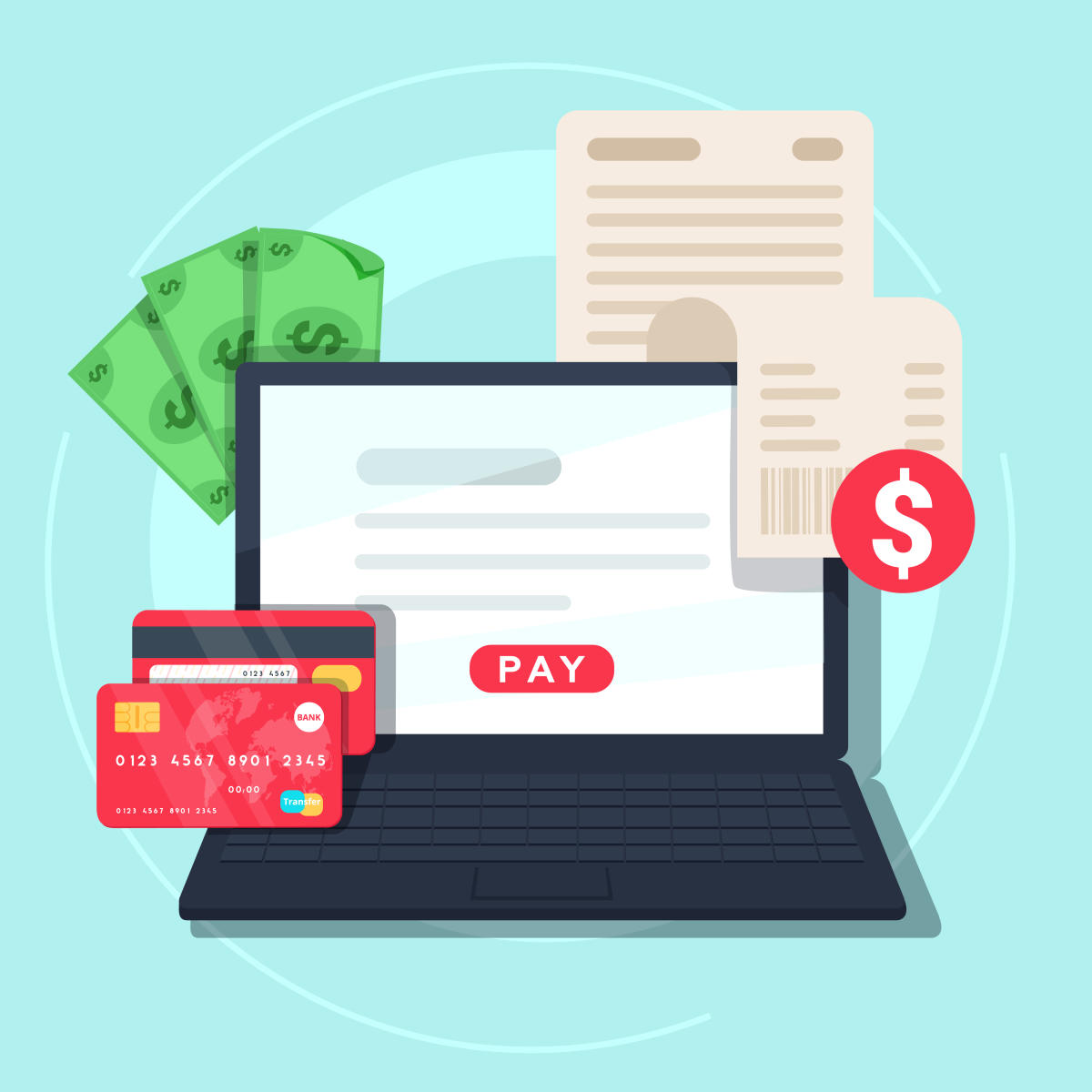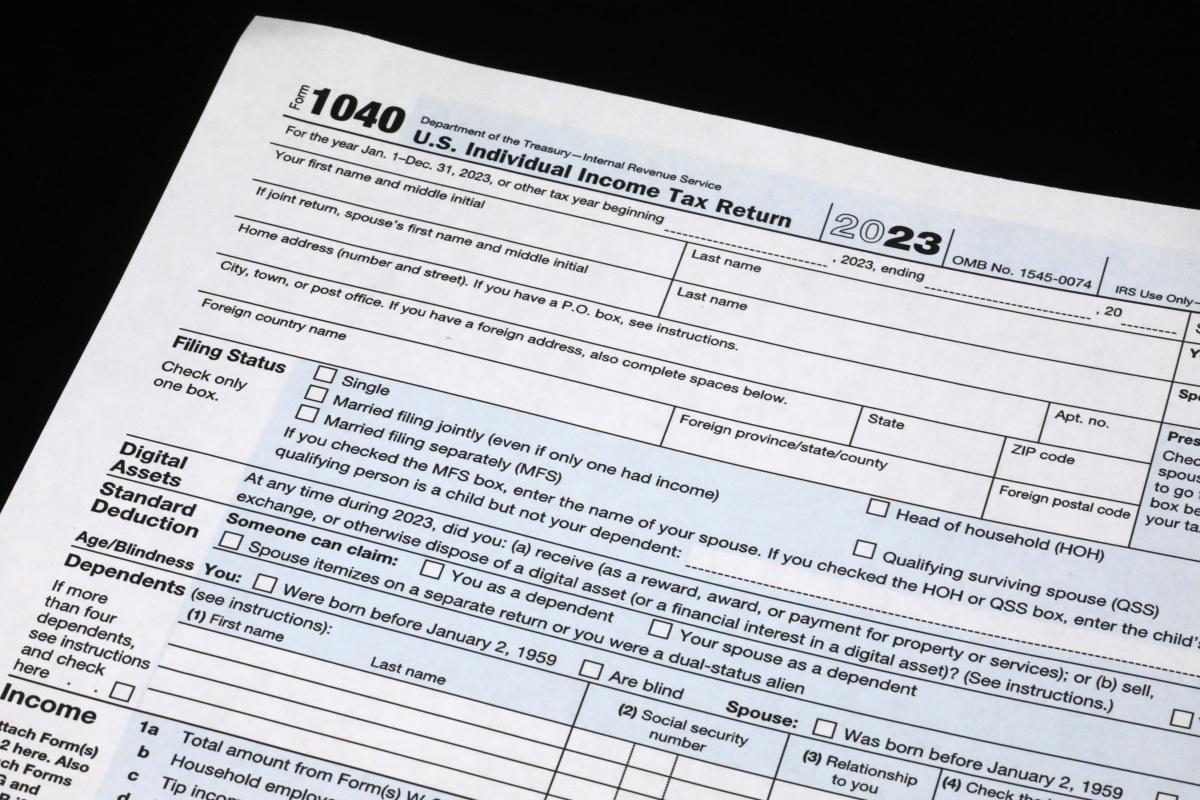It’s possible to pay your taxes with a credit card, but you typically have to pay a fee that’s slightly under 2% of the total transaction. For example, a 1.75% fee on a $10,000 payment would cost $175.
It could make sense to do this for multiple reasons, including if you’re trying to earn a new cardmember welcome bonus, can earn more rewards than the cost of the fee, or are taking advantage of a 0% introductory APR offer on purchases.
It’s possible to pay your federal income tax bill with a credit card, and most states allow you to use a major credit card to pay your taxes, too.
However, the IRS restricts how often you can use a credit card for certain tax types. For example, if you file a tax return Form 1040 — the U.S. Individual Income Tax Return — you can make two credit card payments per year to pay the tax due. You’re limited to two credit card payments per quarter if you pay quarterly estimated taxes.
If you want to use a credit card to pay taxes, you have to make a payment through one of the third-party processors designated by the IRS to handle credit card payments:
-
Pay1040
-
ACI Payments, Inc.
They accept credit cards from the major credit card networks, including American Express, Mastercard, Visa, and Discover. Both processors also accept payments from certain digital wallets, such as PayPal. PayUSAtax used to process tax payments as well, but it no longer does.
Here are the fees these companies charge for using a credit card as a payment method:
-
Pay1040 credit card fee: 1.75% (minimum $2.50)
-
ACI Payments, Inc. credit card fee: 1.85% (minimum $2.50)
To pay via credit card, visit the IRS site and choose one of the available third-party payment processors. The IRS will redirect you to the company’s website, and you can opt to make a personal or small business tax payment.
These processors also accept federal tax payments with a debit card at a lower cost.
Read more: Here are 7 free tax filing options
Using a credit card to pay what you owe on your taxes can make sense in the following four scenarios:
If you owe money at tax time, using a new card to pay the bill may allow you to quickly meet the spending requirements for a credit card sign-up bonus. This can be especially useful if you’re worried about meeting the required spending threshold with your regular budget. Because you need to pay taxes regardless, it may be worth the added service fee to guarantee your bonus.
Here are cards with excellent welcome offers:
Some rewards credit cards have a high enough rewards rate to offset the third-party processing fees you pay when you use a credit card to pay taxes:
-
Capital One Venture Rewards Credit Card: Earn 5x miles on hotels, vacation rentals, and rental cars booked through Capital One Travel 2x miles on all other eligible purchases.
-
Wells Fargo Active Cash® Credit Card: Earn 2% cash rewards on all eligible purchases.
-
Citi Double Cash® Card: Earn 5% cash back on hotel, car rentals and attractions booked on the Citi Travel℠ portal through 12/31/25 and unlimited 1% cash back when you buy, plus an additional 1% as you pay, on every other eligible purchase.
Certain IRS credit card payment processors allow PayPal payments, so you might earn even more with cards that provide bonus rewards on PayPal transactions. That could include cards with rotating categories, such as the Chase Freedom Flex and Discover it® Cash Back Credit Card.
Unfortunately, surprise tax bills can happen. If you owe a substantial amount of money and don’t have the cash to pay it outright, using a 0% APR credit card could make it more manageable:
These offers let you avoid interest charges on your new eligible purchases for the duration of the 0% intro APR period, giving you flexibility to pay off your balance over time.
Remember, you still have to make the required monthly payments, and you should aim to pay off the bill in full by the end of the promotional period. Otherwise, the standard purchase APR — which can be well into the double digits — will apply.
If you forgot about your tax bill and are at risk of missing the payment deadline, using your card is one of the quickest ways to make a payment and ensure it’s processed in time to avoid late fees.
When you use a credit card to pay your taxes, the third-party payment processor sends you a confirmation with a time-stamped proof of payment for your records.
Read more: How to file a tax extension (Just remember you still have to pay by the deadline)
There are some benefits to using a credit card to pay taxes, but there are also some significant downsides to keep in mind:
As mentioned earlier, third-party processors charge fees to process tax payments made with a credit card. The fees are typically a little less than 2% of the payment amount.
Credit cards are a relatively expensive form of credit.
If you use your card to pay your taxes and can’t pay off the bill in full by the statement due date, interest will accrue on the unpaid balance. Over time, interest charges can add hundreds or thousands to your cost.
If at all possible, only use a credit card to pay taxes if you can afford to pay off the balance in full by the balance due date to avoid costly high interest rate charges.
If you have a large tax bill and use your credit card to pay it, you could increase your balance by hundreds or thousands overnight. If your new balance takes up a significant amount of your available credit, the transaction increases your credit utilization, which accounts for about 30% of FICO score.
For example, let’s say you have a credit card with a $1,000 credit limit. You use the card to pay a $500 tax bill. Afterward, you have a $500 balance, so your credit utilization — the percentage of your available credit that you used — is 50%. In general, creditors like to see a credit utilization of 30% or less, so such a high percentage can impact your credit score.
If you use your credit card to pay your tax bill, you typically don’t have to worry about paying added cash advance fees or a higher cash advance APR. The transaction is normally counted as a retail purchase, not a cash advance.
Most states allow you to pay your income taxes with a credit card, but you might have to pay a transaction or convenience fee. Here are some examples of fees in different states:
-
California: 2.3% of the transaction amount
-
New York: 2.2% of the transaction amount
-
Virginia: 2.3% of the transaction amount (or a flat $1 if under $43)
Some states restrict the types of credit cards that can be used. For example, some states only allow using a Mastercard or Visa card for taxpayer payment options.
After making your payment, you typically don’t have to mail a payment voucher or a copy of your payment confirmation email to the IRS. However, you do need to file your tax return or amended return.
This article was edited by Rebecca McCracken
Editorial Disclosure: The information in this article has not been reviewed or approved by any advertiser. All opinions belong solely to Yahoo Finance and are not those of any other entity. The details on financial products, including card rates and fees, are accurate as of the publish date. All products or services are presented without warranty. Check the bank’s website for the most current information. This site doesn’t include all currently available offers. Credit score alone does not guarantee or imply approval for any financial product.
EMEA Tribune is not involved in this news article, it is taken from our partners and or from the News Agencies. Copyright and Credit go to the News Agencies, email news@emeatribune.com Follow our WhatsApp verified Channel





